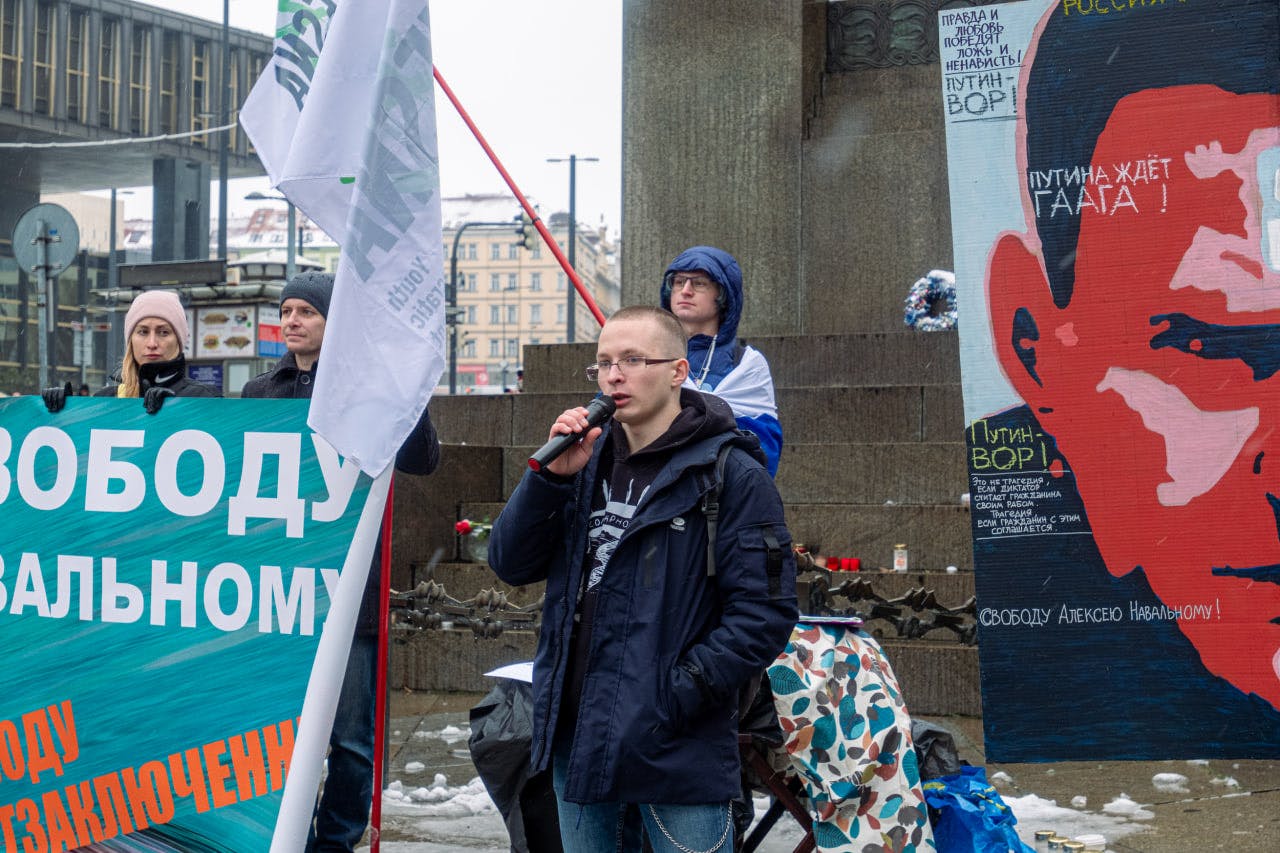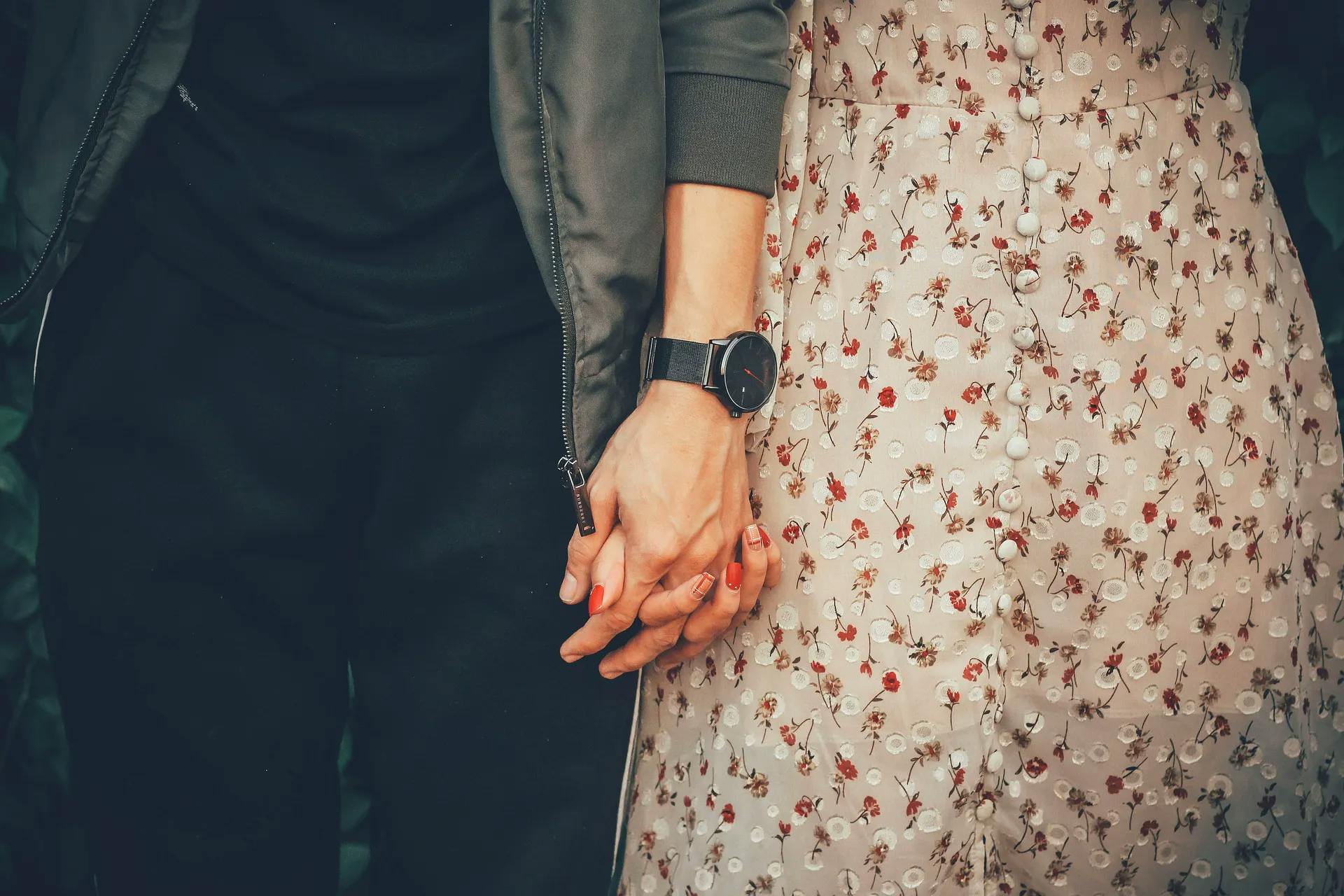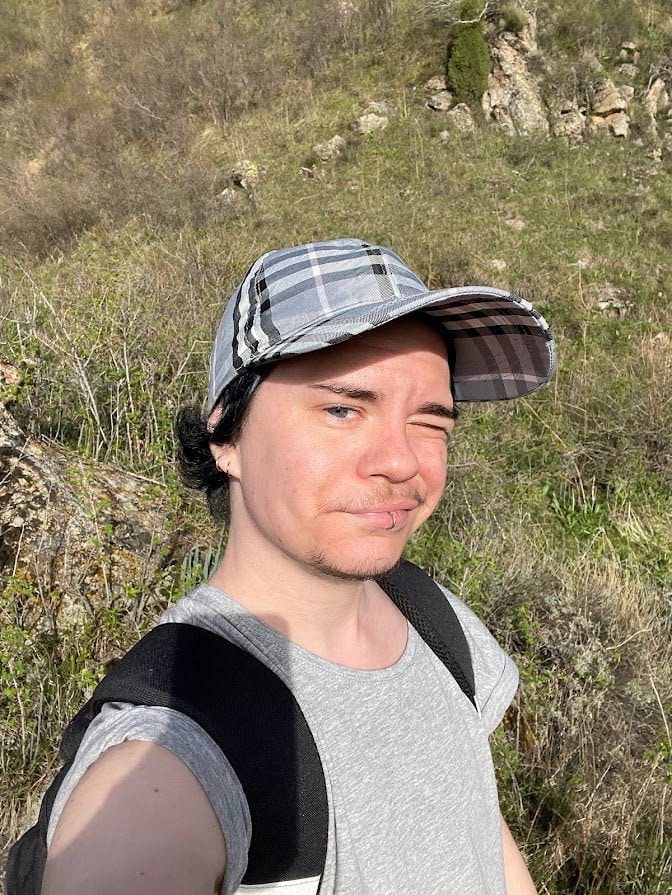Kysh (Andrey)
...do not give up and do not despair, do what you think is the right thing to do. Russia will definitely be free.


Anastasia is 31 years old. Before the war, she lived in Moscow and worked for an NPO. Last autumn, she moved to Berlin.
Tell us about your volunteering activities before the war and after it began: what projects and initiatives have you been part of, and in what way?
Before the war, I was a law school student in Moscow, full of teenage dreams of justice and the rule of law. My dreams went bust early enough—I didn't work a single day as a legal professional.
Since 2020, I have been part of the Collective Action project. It is a research centre that, in pre-war days, specialized in urban policies. We carried out research for the opposition figures who were elected to the Moscow City Council in the autumn of 2019. I juggled a multitude of tasks: when launching a project, you are meant to be in ten places at a time and to do twenty things concurrently—all within deadlines. In other words, I managed projects.
When the war broke out, we launched a study on the full-scale invasion and decided to organise an anti-war forum. In June 2022, we gathered over 100 people from different parts of the country at the Forum for Peaceful Russia, an offline event held in Saint Petersburg The most important feedback that I received was “thank you, it felt so much unlike 2022”.
Tell us about the project you’re working on: where does it come from, how did you come up with the idea?
I moved to Berlin in the autumn of 2022 because it felt very unsafe to stay in Moscow after the Forum for Peaceful Russia. We were being tracked, our office was broken into, we found offensive stickers on the windows of my husband's apartment, and he was detained several times in a row. So, we decided to leave.
My current project is called Reforum Space Berlin. This is a hub for people from Russia and Belarus who had to leave their countries due to job-related persecution, but would like to continue their work abroad. We also support those Ukrainians and Ukrainian teams who are ready to accept our help.
The idea came after the start of the full-scale invasion. We quickly realised that we were at the brink of a migration wave from Russia, and a significant one. Thus, we decided to create a space where these people could work, learn a new language, get psychological help or attend public talks with prominent speakers. Here they can enjoy a supportive atmosphere and take a little break from the troubles of emigration.
What is the hardest part of it for you?
The hardest part is to accept that there is no coming home anytime soon. You've got to go on with your life staying here, and there is no other choice.
What is the main goal for your project and you personally?
The main goal of this project is to become an “assembly point” of civil society. So that we don't lose ourselves during these couple of years away from home. So that this “society” would continue to exist, despite the fact that we are in different countries, cities, and circumstances. So that projects could thrive and work against Putin's war and propaganda. My goal within this project is to breathe life into the space, take care of our guests and develop our hub.
Which way of opposing the war and propaganda do you find the most effective?
I think that education is the most effective way to fight back against propaganda. On all levels. It is necessary to talk about the war with children, with parents, with neighbours. Make it understood from childhood that war is blood, dirt, pain, children left without parents, destroyed lives. That there is nothing good in war, nothing to be romanticised. That it affects everyone without exception, that it is impossible to stay “out of politics”. Education should be implemented at all levels—from the family to the school and the state.
What does all this give you personally? Why do you find it important?
I feel importance when people thank me, when they say that they managed to relax and have a moment to breathe. It drives me. I think that projects such as ours are particularly important, so that we don't lose the foundation for the Beautiful Russia of the Future—her civil society.
How do you cope with psychological stress? Where do you find the strength to go on?
I have a therapist and I share my worries with her. When I understand that I can't deal with it anymore, I spend a day with my family. We agree with my mother and sisters that we are going for a walk “together”: I am in Berlin, they are in Saint Petersburg and Moscow. We walk and chat about nothing, go into coffee shops at the same time, get coffee to go, tell each other what we see around us. It's like we're walking next to each other. It really helps, gives me the strength to continue.
What would you like to say or wish to anti-war activists and volunteers?
I wish activists and volunteers to keep their hands up. Don't forget to take care of yourself. And remember that even in dark times you can find happiness if you never forget to turn towards the light.
How can people help your project right now?
Come and join us at Reforum. Bring your projects. Tell your friends and acquaintances in Berlin, Tbilisi, Tallinn and Vilnius about our venues.
...do not give up and do not despair, do what you think is the right thing to do. Russia will definitely be free.

...No one could ever imagine that literally tomorrow you would have to turn your life around 180 degrees and leave for a foreign country.

I still believe that someday the LGBT parades during Pride Month will be celebrated on the same level as Labour Day parades in May.

Our media platform would not exist without an international team of volunteers. Do you want to become one? Here's the list of currently opened positions:
Is there any other way you would like to contribute? Let us know:
We talk about the current problems of Russia and of its people, standing against the war and for democracy. We strive to make our content as accessible as possible to the European audience.
Do you want to cooperate on content made by the Russian standing against the war?
We want to make people of Russia, who stand for peace and democracy, heard. We publish their stories and interview them in Ask a Russian project.
Are you a person of Russia or know someone who would like to share their story? Please contact us. Your experience will help people understand how Russia works.
We can publish your experience anonymously.
Our project is ran by international volunteers - not a single member of the team is paid in any way. The project, however, has running costs: hosting, domains, subscription to paid online services (such as Midjourney or Fillout.com) and advertising.
Our transparent bank account is 2702660360/2010, registered at Fio Banka (Czech republic). You can either send us money directly, or scan one of the QR codes bellow in your banking app:




Note: The QR codes work only when you scan them directly from your banking app.
Russia started the war against Ukraine. This war is happening from 2014. It has only intensified on February 24th 2022. Milions of Ukrainians are suffering. The perpetrators of this must be brought to justice for their crimes.
Russian regime tries to silence its liberal voices. Russian people against the war exist - and the Russian regime tries its best to silence them. We want to prevent that and make their voices heard.
Connection is crucial. The Russian liberal initiatives are hard to read for European public at times. The legal, social and historical context of Russia is not always clear. We want to share information, build bridges and connect the liberal Russia with The West.
We believe in dialogue, not isolation. The oppositional powers in Russia will not be able to change anything without the support of the democratic world. We also believe that the dialogue should go both ways.
The choice is yours. We understand the anger for the Russian crimes. It is up to you whether you want to listen to the Russian people standing against this.